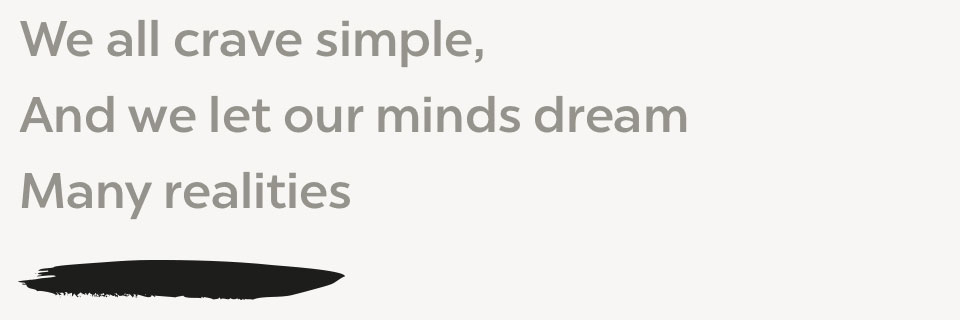In last week’s article, I introduced the idea that common sense is a super power that comes from diligent work in the realm of awareness. It comes from turning toward the pain of illusory beliefs, values, and ideas you have about yourself. Because, if you’re not willing to look at aspects of your internal reality, you also must screen out aspects of the external reality. The “simple perception” that common sense comes from becomes complicated with your projections, assumptions, and interpretations.
But proactively choosing short-term discomfort for long-term benefits, especially when it comes to giving up an idea about yourself, isn’t easy. It’s not what we’re taught. We’re taught to know who we are (whatever that means), be confident in it, and have conviction for our beliefs and values.
And this is all great, except that inevitably some of your deepest beliefs, values, and self-images are complete and total bullshit. That’s the problem with making your mind up on these things as a child. Let’s examine a passage from my coaching alma mater:
“The problem with most failing businesses I’ve encountered is not that their owners don’t know enough about finance, marketing, management, and operations—they don’t, but those things are easy enough to learn—but that they spend their time and energy defending what they think they know. The greatest business people I’ve met are determined to get it right no matter what the cost.” – Michael Gerber, E-Myth Revisited (Foreword p. xiii)
Let me revise the last sentence for some metaphysical acuity: “The greatest business people I’ve met courageously embrace the truth, no matter how emotionally painful it may be.”
What did you think it meant? That they tinker with systems even if it means missing lunch?
The pain of losing whatever bullshit you’ve held to be sacred and true is the cost. Because we grip it so tightly we think it’s part of our body, and when you’ve been flexing a muscle like crazy for way too long, it hurts more to let go than to keep holding on. We choose the familiar misery rather than the unknown, even if it promises something better. That’s how afraid we are. It makes no sense at all, but it’s incredibly common.
So, how do you learn common sense? First, you understand that it’s not in the domain of knowledge or skill. It exists in the realm of awareness. Second, you surrender to the inevitability of your blind-spots. And third, you look for where life tells you where they are.
- When you think money is fine and then next week you can’t make payroll, you have an opportunity to learn common sense: budget profit and cash.
- When you think your people are completely engaged, and then three of your best employees leave in a month, you have an opportunity to learn common sense: mentor your people.
- When you think your time and task management is terrific, yet you are too chronically overwhelmed give your spouse the attention they need, and they leave you, you have an opportunity to learn common sense: be organized.
But, although each of these situations has knowledge and skill lessons related to them via budgeting, mentoring, and organizing, you only learn the deeper common sense by asking questions. For example:
How did I contribute to this happening?
What beliefs, values, and self-images do I have that aren’t true?
This is the path to awareness–looking at how you were distorting reality. Let’s go deeper with the examples above:
- You told yourself money was fine because the idea of budgeting reminds you of dieting and you avoid it like the plague. It infringes on your (distorted) sense of freedom.
- You told yourself you were a great manager because you have such a profound need to be liked that you created a culture where people blow smoke up each others’ butts and no one says what they really think until it’s too late.
- You told yourself you’re highly organized because being chronically overwhelmed makes you feel busy and productive so you don’t have to feel how your marriage is falling apart.
Most people tell you common sense comes from “experience” and it does. Yet, all of us have seen that we can have the same kind of experience multiple times until we learn the lesson. So, it’s not the experience that is the source of the lesson, it’s what we do with it–how much we let experience change us. And to let experience change us, we must hold our idea of ourselves loosely, and to do that, we must be brave.
What is it about you that you really know for sure?
If you dig deep enough, you’ll find the answer is not much.
The cost? Knowing who you are.
The reward? Being who you are.
When you’re simply who you are, you can simply perceive reality and cut through all the bullshit, creating straight lines to solutions. This is the superpower of common sense. Most people draw curvy lines toward solutions, as they unconsciously implement workarounds which serve more to preserve their distorted perception, not actually change anything.
The fact is that your problems probably are so simple they can be identified and solved in a matter of weeks, at most months. That’s been my experience helping people for almost sixteen years. All it takes is the willingness to really look at what’s true.
Red pill, anyone?


